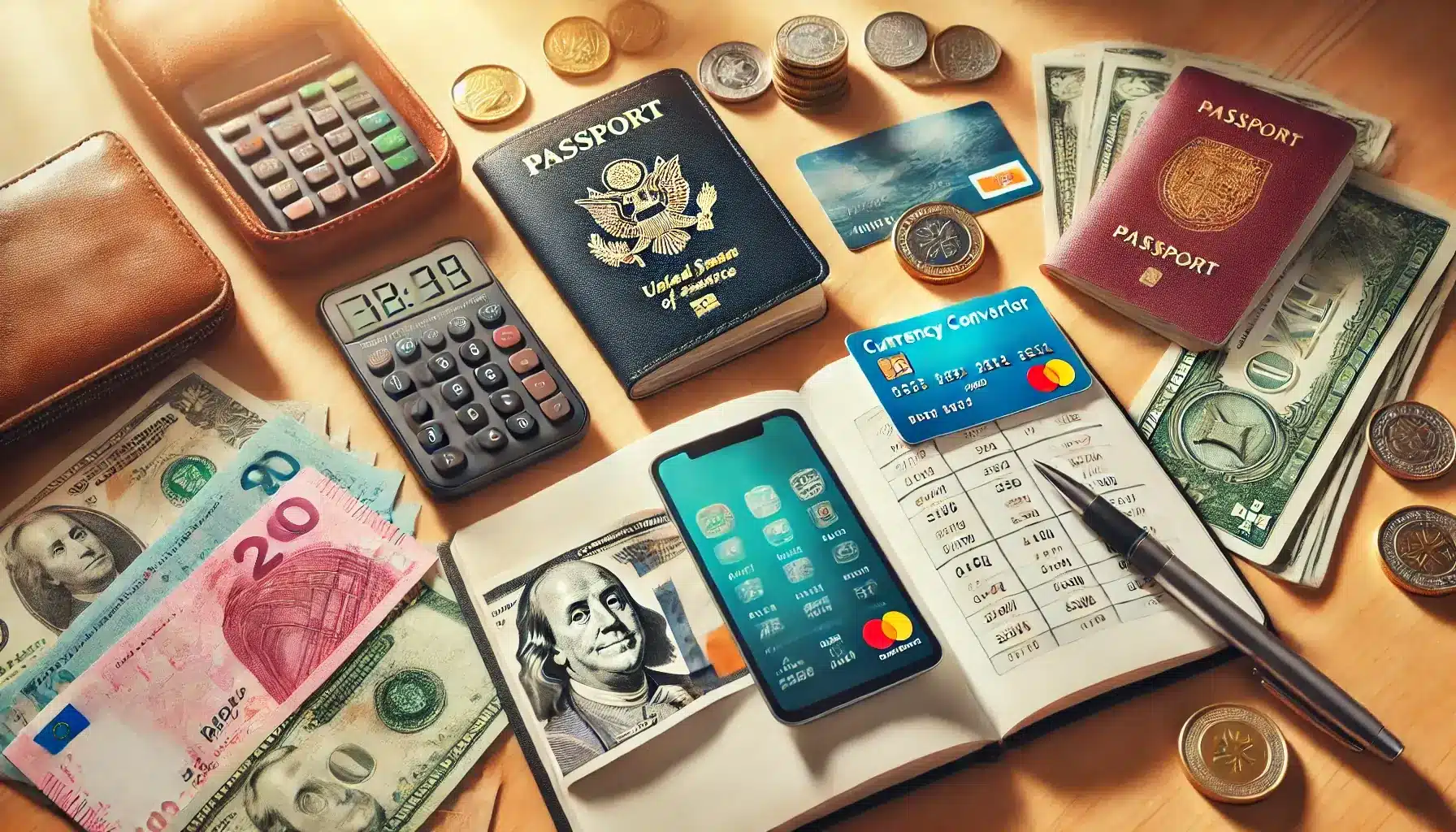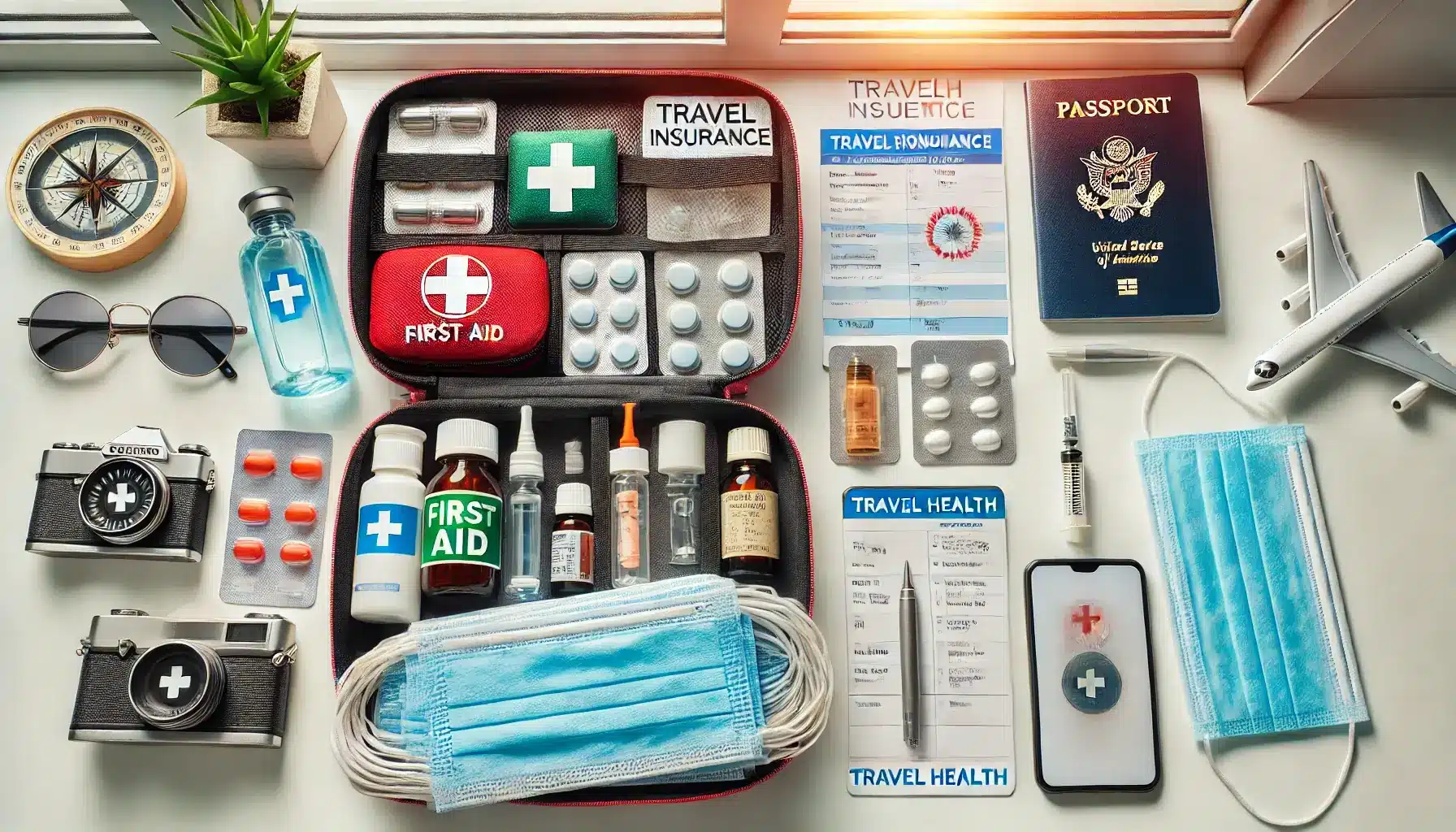Are you drowning in a sea of travel information, unsure where to start planning your next adventure? he world of travel resources can be overwhelming, with countless websites, apps, and guides vying for your attention. But fear not, intrepid explorer! We’ve got you covered with the ultimate compass to navigate the vast landscape of travel planning.
Picture this: You’re about to embark on the trip of a lifetime, but the sheer volume of decisions to make is making your head spin. From choosing the perfect destination to figuring out how to pack efficiently, the challenges can seem insurmountable. But what if we told you there’s a way to turn that stress into excitement? Our comprehensive guide to travel resources is here to transform your journey from daunting to delightful.
In this all-encompassing blog post, we’ll walk you through every aspect of trip planning, from the initial stages of dreaming up your ideal getaway to the nitty-gritty details of sustainable travel. We’ll cover essential topics like transportation options, accommodation choices, packing tips, money management, health and safety precautions, cultural immersion, and even resources for digital nomads. So, buckle up and get ready for a whirlwind tour of the best travel resources that will make your next adventure unforgettable!
Planning Your Trip with Travel Resources

A. Choosing your destination
Selecting the perfect destination is the cornerstone of any memorable journey. Consider factors such as your interests, budget, and travel style when making this decision. Research potential locations thoroughly, exploring their unique attractions, climate, and cultural offerings. Don’t forget to check visa requirements and travel advisories for your chosen destination.
| Destination Type | Key Considerations |
|---|---|
| Beach Getaway | Weather, water activities, resorts |
| City Break | Cultural attractions, nightlife, public transportation |
| Adventure Trip | Outdoor activities, gear requirements, local guides |
| Historical Tour | Landmarks, museums, guided tours |
B. Setting a budget
A well-planned budget is crucial for a stress-free trip. Start by determining your overall spending limit, then break it down into categories:
- Transportation (flights, local travel)
- Accommodation
- Food and drinks
- Activities and attractions
- Shopping and souvenirs
- Emergency fund
Remember to account for hidden costs like visa fees, travel insurance, and currency exchange rates. Research the cost of living in your destination to get a realistic idea of daily expenses.
C. Creating an itinerary
Craft a balanced itinerary that allows for both planned activities and spontaneous exploration. Here are some tips:
- List must-see attractions and experiences
- Group activities by location to minimize travel time
- Allow buffer time between activities for unexpected delays
- Include rest days, especially for longer trips
- Research opening hours and book popular attractions in advance
- Leave room for flexibility and last-minute discoveries
D. Travel insurance options
Travel insurance is an essential safeguard against unexpected events. When choosing a policy, consider coverage for:
- Medical emergencies and evacuation
- Trip cancellation or interruption
- Lost or delayed baggage
- Personal liability
Compare policies from different providers to find the best fit for your trip. Factors to consider include:
- Duration of coverage
- Destination-specific coverage
- Pre-existing condition clauses
- Adventure activity coverage
- Claim process and customer support
Now that you have a solid plan for your trip, it’s time to explore your transportation options to make your travel dreams a reality.
Transportation and Travel Resources

Now that you’ve planned your trip, let’s explore the various transportation options available to make your journey smooth and cost-effective.
A. Finding cheap flights
Finding affordable flights is often the first step in planning a budget-friendly trip. Here are some strategies to help you secure the best deals:
- Use flight comparison websites like Skyscanner, Kayak, or Google Flights
- Be flexible with your travel dates and consider flying mid-week
- Set up price alerts for your desired routes
- Consider budget airlines for shorter flights
- Look for error fares or flash sales from airlines
| Website | Features | Best for |
|---|---|---|
| Skyscanner | Flexible date search, price alerts | Budget-conscious travelers |
| Google Flights | Explore map, price tracking | Visual planners |
| Kayak | Price forecasts, hacker fares | Data-driven decision makers |
B. Comparing rental car services
Renting a car can provide flexibility and convenience during your travels. Here’s how to find the best rental car deals:
- Compare prices across multiple agencies using sites like Rentalcars.com or Kayak
- Check for discounts through memberships (e.g., AAA, Costco)
- Book in advance for better rates
- Consider off-airport locations for potentially lower prices
- Read the fine print regarding insurance and fuel policies
C. Public transportation guides
Navigating public transportation in a new city can be daunting, but it’s often the most cost-effective way to get around. Here are some tips:
- Research the local transportation system before arrival
- Download transit apps like Citymapper or Moovit for real-time updates
- Purchase multi-day passes for unlimited rides if available
- Learn basic phrases in the local language for buying tickets or asking for directions
D. Ride-sharing apps worldwide
Ride-sharing apps have revolutionized urban transportation. Some popular options include:
- Uber (available in many countries)
- Lyft (primarily in North America)
- Grab (Southeast Asia)
- Didi (China)
- Bolt (Europe and Africa)
Always check the availability and legality of ride-sharing services in your destination before relying on them.
E. Cruise and ferry information
For coastal or island destinations, cruises and ferries can be both a mode of transportation and an experience in themselves. Consider the following:
- Research cruise lines that cater to your preferred style of travel (luxury, adventure, family-friendly)
- Book ferry tickets in advance, especially during peak seasons
- Check baggage restrictions and arrival times at ports
- Look for combination tickets that include transportation and attractions
With these transportation resources at your disposal, you’ll be well-equipped to navigate your way through your travel destinations efficiently and economically. Next, we’ll explore various accommodation options to suit different travel styles and budgets.
Accommodation Options

Now that we’ve covered transportation, let’s explore the various accommodation options available for your travels. Finding the perfect place to stay can greatly enhance your travel experience, and there are numerous resources to help you secure the ideal lodging for your needs and budget.
A. Hotel booking platforms
Hotel booking platforms have revolutionized the way travelers find and reserve accommodations. These websites offer a vast array of options, from budget-friendly hostels to luxury resorts. Some popular platforms include:
- Booking.com
- Expedia
- Hotels.com
- Agoda
These sites often provide user reviews, detailed property information, and competitive pricing. Many also offer loyalty programs, allowing you to earn points or free nights for future stays.
B. Vacation rental websites
For those seeking a more home-like experience or traveling with larger groups, vacation rental websites are an excellent option. These platforms connect travelers with property owners offering apartments, houses, or unique accommodations. Popular vacation rental websites include:
- Airbnb
- Vrbo (Vacation Rentals by Owner)
- HomeAway
- FlipKey
Vacation rentals often provide amenities like kitchens and laundry facilities, making them ideal for longer stays or family trips.
C. Hostel finders
Hostels are a budget-friendly option, particularly popular among younger travelers and backpackers. These accommodations typically offer shared dormitories and common areas, fostering a social atmosphere. Some reliable hostel finder websites include:
- Hostelworld
- Hostelling International
- Hostelz
Many hostels also offer private rooms for those seeking a balance between budget and privacy.
D. House-sitting opportunities
House-sitting presents a unique opportunity to stay in a local home for free in exchange for taking care of the property and, often, pets. This option allows for a more immersive cultural experience and can significantly reduce accommodation costs. Popular house-sitting websites include:
- TrustedHousesitters
- MindMyHouse
- HouseCarers
To help you choose the best accommodation option for your needs, consider the following factors:
| Factor | Hotels | Vacation Rentals | Hostels | House-sitting |
|---|---|---|---|---|
| Privacy | High | High | Low-Medium | High |
| Cost | Medium-High | Medium | Low | Very Low |
| Amenities | Many | Varies | Basic | Varies |
| Social Aspect | Low | Low | High | Medium |
| Local Experience | Low | Medium | Medium | High |
When selecting your accommodation, consider your budget, desired level of privacy, and the type of experience you’re seeking. Each option has its own advantages, and you may find that mixing different types of accommodations throughout your trip provides the best overall experience.
Next, we’ll delve into packing essentials to ensure you’re well-prepared for your journey, regardless of where you choose to stay.
Packing Essentials

Now that we’ve covered transportation and accommodation, let’s dive into the crucial topic of packing essentials. Proper packing can make or break your travel experience, so it’s important to get it right.
A. Luggage recommendations
Choosing the right luggage is essential for a smooth journey. Consider these options:
| Luggage Type | Best For | Features |
|---|---|---|
| Carry-on backpack | Short trips, budget airlines | Versatile, hands-free |
| Wheeled carry-on | Business trips, easy maneuverability | Compact, professional |
| Checked suitcase | Longer trips, families | Spacious, durable |
| Duffel bag | Adventure travel, outdoor activities | Flexible, water-resistant |
Remember to check your airline’s size and weight restrictions before selecting your luggage.
B. Travel-sized toiletries
Packing travel-sized toiletries is crucial for saving space and complying with airport security regulations. Here’s a list of essential toiletries to pack:
- Toothbrush and travel-sized toothpaste
- Deodorant
- Shampoo and conditioner bars (eco-friendly option)
- Moisturizer with SPF
- Hand sanitizer
- Medications in their original containers
Pro tip: Invest in reusable silicone travel bottles to reduce waste and save money in the long run.
C. Tech gadgets for travelers
In today’s digital age, certain tech gadgets can greatly enhance your travel experience:
- Universal power adapter
- Portable charger or power bank
- Noise-canceling headphones
- E-reader for books and travel guides
- Compact camera or smartphone with a good camera
- Portable Wi-Fi device for staying connected
D. Clothing tips for various climates
Packing the right clothes for your destination’s climate is crucial. Here are some tips:
- Layering is key for versatility in changing weather conditions
- Pack quick-dry, wrinkle-resistant fabrics
- Choose a neutral color palette for easy mix-and-match outfits
- Include a lightweight, packable rain jacket for unexpected showers
- Don’t forget comfortable walking shoes and flip-flops for beach destinations
Remember to research your destination’s cultural norms to ensure your clothing choices are appropriate and respectful.
By following these packing essentials tips, you’ll be well-prepared for your journey, regardless of the destination or duration of your trip. With your luggage sorted, toiletries organized, tech gadgets ready, and appropriate clothing packed, you’ll be able to focus on enjoying your travel experiences to the fullest. Next, we’ll explore the important aspect of managing your finances while traveling.
Money Matters

Now that we’ve covered the essentials of packing, let’s dive into an equally crucial aspect of travel planning: managing your finances while abroad. Understanding how to handle money matters can make or break your travel experience, ensuring you stay within budget and avoid unnecessary financial stress.
A. Currency Exchange Services
When it comes to exchanging currency, travelers have several options:
- Banks: Often offer competitive rates but may have limited hours
- Airport kiosks: Convenient but typically have higher fees
- ATMs: Generally provide good rates and are widely available
- Online services: Can offer better rates for pre-ordering currency
| Service | Pros | Cons |
|---|---|---|
| Banks | Competitive rates | Limited hours |
| Airport kiosks | Convenient | Higher fees |
| ATMs | Good rates, widely available | Potential ATM fees |
| Online services | Better rates for pre-ordering | Requires planning ahead |
To get the best deal, compare rates and fees across different services before your trip. Remember, it’s often wise to have a small amount of local currency on hand upon arrival for immediate expenses.
B. Travel-Friendly Credit Cards
Choosing the right credit card can save you money and provide valuable benefits:
- Look for cards with no foreign transaction fees
- Consider cards offering travel rewards or cashback
- Check for cards providing travel insurance or rental car coverage
Many travel-focused credit cards also offer perks like airport lounge access or concierge services, which can enhance your travel experience.
C. Budgeting Apps for Travelers
Keeping track of expenses while traveling can be challenging. Fortunately, there are numerous budgeting apps designed specifically for travelers:
- Trail Wallet: Allows you to set a daily budget and track expenses in multiple currencies
- TripCoin: Offers offline functionality and the ability to split expenses with travel companions
- Mint: Provides a comprehensive overview of your finances, including bank accounts and credit cards
- XE Currency: Helps you quickly convert currencies and track exchange rates
These apps can help you stay on top of your spending and make informed financial decisions throughout your journey.
D. Tipping Customs Around the World
Tipping practices vary significantly across cultures, and it’s essential to understand local customs to avoid awkward situations or unintentionally offending locals:
- In some countries, like Japan, tipping is not expected and may even be considered rude
- In the United States, tipping is customary and often expected in service industries
- Many European countries include a service charge in restaurant bills, but additional tipping is appreciated
- In some Middle Eastern countries, tipping (known as “baksheesh”) is a common practice for various services
Before traveling to a new destination, research local tipping customs to ensure you’re prepared and respectful of local norms.
By mastering these money matters, you’ll be better equipped to enjoy your travels without financial worries. Next, we’ll explore essential health and safety considerations to ensure a smooth and secure journey.
Health and Safety

Now that we’ve covered the financial aspects of your journey, let’s delve into an equally important topic: health and safety during your travels.
A. Vaccination Requirements
Before embarking on your adventure, it’s crucial to understand and fulfill the vaccination requirements for your destination. Different countries have varying regulations, and some may require proof of specific vaccinations upon entry. Here’s a quick guide to help you navigate this process:
- Check the CDC or WHO websites for up-to-date vaccination recommendations
- Consult with your healthcare provider or a travel clinic
- Keep a record of your vaccinations in an international certificate
| Common Travel Vaccines | Recommended For |
|---|---|
| Hepatitis A & B | Most travelers |
| Typhoid | High-risk areas |
| Yellow Fever | Tropical regions |
| Meningitis | African meningitis belt |
B. Travel Clinics and Medical Resources
Travel clinics are specialized healthcare facilities that cater to the unique needs of international travelers. They offer:
- Pre-travel consultations
- Vaccinations and medications
- Expert advice on health risks in specific destinations
Some reliable online medical resources for travelers include:
- International Association for Medical Assistance to Travellers (IAMAT)
- International SOS
- WebMD’s Travel Health Center
C. Emergency Contact Information
Having quick access to emergency contact information can be a lifesaver. Create a document with the following details:
- Local emergency numbers (police, ambulance, fire department)
- Contact information for your country’s embassy or consulate
- Your travel insurance provider’s 24/7 assistance hotline
- A trusted contact back home
Pro tip: Store this information both digitally and in hard copy, and keep it easily accessible at all times.
D. Travel Safety Apps
In today’s digital age, numerous apps can enhance your travel safety. Here are some top picks:
- TripWhistle Global SOS: Provides local emergency numbers worldwide
- bSafe: Offers personal safety features like SOS alerts and live streaming
- Smart Traveler: Official app from the U.S. Department of State with travel alerts and advisories
- GeoSure: Provides safety scores for neighborhoods around the world
| App Name | Key Features |
|---|---|
| TripWhistle Global SOS | Local emergency numbers, GPS location sharing |
| bSafe | SOS button, live streaming, fake calls |
| Smart Traveler | Travel alerts, embassy locations, safety information |
| GeoSure | Neighborhood safety scores, LGBTQ+ safety ratings |
By prioritizing your health and safety, you can enjoy your travels with peace of mind. Remember, prevention is always better than cure, so take the time to prepare thoroughly before your trip. With these resources at your fingertips, you’ll be well-equipped to handle any situation that may arise during your journey.
Next, we’ll explore how to immerse yourself in cultural experiences, adding depth and richness to your travel adventures.
Cultural Experiences

Now that we’ve covered the practical aspects of travel, let’s delve into the heart of what makes journeys truly memorable: cultural experiences. Immersing yourself in local cultures can transform your trip from a mere vacation to a life-changing adventure.
Language Learning Tools
Breaking down language barriers is crucial for authentic cultural experiences. Here are some top language learning tools for travelers:
- Duolingo: Free, gamified language learning app
- Babbel: Conversational approach with native speakers
- Rosetta Stone: Immersive language learning software
- Tandem: Language exchange app connecting learners worldwide
| Tool | Best For | Pricing |
|---|---|---|
| Duolingo | Casual learners | Free (with ads) |
| Babbel | Serious learners | Subscription-based |
| Rosetta Stone | Immersive learning | One-time purchase |
| Tandem | Practice with natives | Free (premium features available) |
Local Tour Booking Platforms
To truly understand a culture, guided tours with local experts are invaluable. Consider these platforms:
- GetYourGuide: Offers a wide range of tours and activities worldwide
- Airbnb Experiences: Unique activities hosted by locals
- WithLocals: Private tours and experiences with local guides
- Viator: Comprehensive tour booking platform with user reviews
Culinary Experience Finders
Food is a gateway to culture, and these platforms help you discover authentic local cuisines:
- EatWith: Dine with locals in their homes
- Traveling Spoon: Private cooking classes and meals with local hosts
- Eatwith: Food tours, cooking classes, and dining experiences
- Culinary Backstreets: In-depth food tours in cities around the world
Cultural Etiquette Guides
Understanding local customs is crucial for respectful travel. Here are resources for cultural etiquette:
- CultureGrams: Comprehensive reports on countries’ customs and etiquette
- Kwintessential: Free country guides with cultural dos and don’ts
- eDiplomat: Global etiquette guides for business and social situations
- Cultural Atlas: Detailed cultural information for various countries
By utilizing these resources, you’ll be well-equipped to dive deep into the local culture of your destination. Remember, cultural immersion is about more than just observing; it’s about participating, learning, and growing. Whether you’re learning a few phrases in the local language, joining a cooking class, or simply being mindful of local customs, these experiences will enrich your travels and create lasting memories.
Next, we’ll explore essential resources for digital nomads, perfect for those looking to blend work and travel seamlessly.
Digital Nomad Resources

As the world of work continues to evolve, more people are embracing the digital nomad lifestyle. This section will explore essential resources for those looking to combine travel with remote work.
A. Co-working Space Directories
Finding a suitable workspace is crucial for digital nomads. Here are some top co-working space directories to help you discover productive environments worldwide:
- Coworker.com
- WeWork
- Regus
- WorkFrom.co
- Deskpass
These platforms offer a variety of options, from budget-friendly shared spaces to premium private offices. Many provide amenities such as high-speed internet, meeting rooms, and networking opportunities.
| Directory | Global Reach | Booking Options | User Reviews |
|---|---|---|---|
| Coworker.com | 170+ countries | Daily, weekly, monthly | Yes |
| WeWork | 38 countries | Monthly memberships | Limited |
| Regus | 120+ countries | Hourly to yearly | Yes |
| WorkFrom.co | Worldwide | Varies by location | Yes |
| Deskpass | US-focused | Daily, monthly | Yes |
B. Remote Job Boards
For digital nomads seeking new opportunities, remote job boards are invaluable resources. Some popular options include:
- Remote.co
- We Work Remotely
- FlexJobs
- Upwork
- Toptal
These platforms cater to various industries and skill levels, offering both full-time positions and freelance gigs.
C. Visa Information for Digital Nomads
Navigating visa requirements is a crucial aspect of the digital nomad lifestyle. Several countries now offer specific visas for remote workers:
- Estonia (e-Residency program)
- Barbados (Welcome Stamp)
- Croatia (Digital Nomad Visa)
- Dubai (Remote Work Visa)
- Portugal (D7 Visa)
Research each country’s requirements and application processes thoroughly before applying. Websites like Nomad Visa and Nomad List provide up-to-date information on visa options for digital nomads.
D. Networking Events for Travelers
Building a community while on the move is essential for digital nomads. Here are some ways to connect with like-minded individuals:
- Meetup.com: Search for digital nomad or expat groups in your current location.
- Couchsurfing events: Attend local gatherings organized by the Couchsurfing community.
- Nomad List: Join city-specific Slack channels to connect with other nomads.
- Facebook groups: Participate in groups like “Digital Nomads Around the World” or location-specific nomad groups.
- Co-living spaces: Many offer regular social events for residents.
Attending these events can lead to new friendships, professional connections, and valuable insights into the digital nomad lifestyle.
Now that we’ve covered essential digital nomad resources, let’s explore how to make your travels more sustainable and eco-friendly.
Sustainable Travel

Now that we’ve explored various aspects of travel planning, it’s crucial to consider the impact of our journeys on the environment and local communities. Sustainable travel is not just a trend; it’s a responsibility we all share as global citizens. Let’s dive into some key aspects of eco-friendly travel.
Eco-friendly Accommodation Options
When choosing where to stay, consider accommodations that prioritize sustainability. Many hotels and resorts now offer eco-friendly options that minimize environmental impact without compromising comfort. Here’s a comparison of different types of sustainable lodging:
| Accommodation Type | Sustainability Features | Best For |
|---|---|---|
| Eco-lodges | Solar power, rainwater harvesting, local materials | Nature lovers |
| Green hotels | Energy-efficient appliances, recycling programs | Urban travelers |
| Homestays | Cultural immersion, support local economies | Authentic experiences |
| Camping | Minimal environmental impact, closeness to nature | Adventure seekers |
Responsible Tour Operators
Choosing the right tour operator can make a significant difference in your travel footprint. Responsible tour operators focus on:
- Supporting local communities
- Preserving natural habitats
- Educating travelers about local cultures and environments
- Minimizing waste and energy consumption
Look for certifications such as Rainforest Alliance or Global Sustainable Tourism Council when selecting tour companies.
Carbon Offset Programs
Air travel is often unavoidable, but you can mitigate its environmental impact through carbon offset programs. These initiatives allow travelers to invest in projects that reduce greenhouse gas emissions. Some popular carbon offset options include:
- Reforestation projects
- Renewable energy development
- Methane capture from landfills
- Energy-efficient cookstove distribution in developing countries
Many airlines now offer carbon offset options during the booking process, making it easier for travelers to take responsibility for their carbon footprint.
Ethical Wildlife Experiences
Interacting with wildlife can be a highlight of any trip, but it’s crucial to ensure these experiences are ethical and do not harm animals or their habitats. Here are some guidelines for ethical wildlife tourism:
- Choose sanctuaries and conservation centers over zoos or circuses
- Avoid attractions that allow direct contact with wild animals
- Opt for guided nature walks or safaris that observe animals from a distance
- Support organizations that prioritize animal welfare and habitat preservation
By incorporating these sustainable travel practices into your journey, you not only minimize your environmental impact but also contribute positively to local communities and ecosystems. Remember, every small action counts towards creating a more sustainable travel industry.
Wrap-UP

Embarking on a journey requires careful planning and the right travel resources. From choosing transportation and accommodations to managing finances and prioritizing health and safety, every aspect of your trip deserves attention. By utilizing the comprehensive guide provided, you can ensure a smoother, more enjoyable travel experience. Remember to pack wisely, immerse yourself in local cultures, and consider sustainable travel options to minimize your environmental impact.
Whether you’re a seasoned traveler or a first-time adventurer, the world of travel is constantly evolving. Stay informed, be flexible, and embrace new experiences. With the right resources at your fingertips, you’re well-equipped to create unforgettable memories and broaden your horizons. So, start planning your next adventure today and let the journey transform you.

